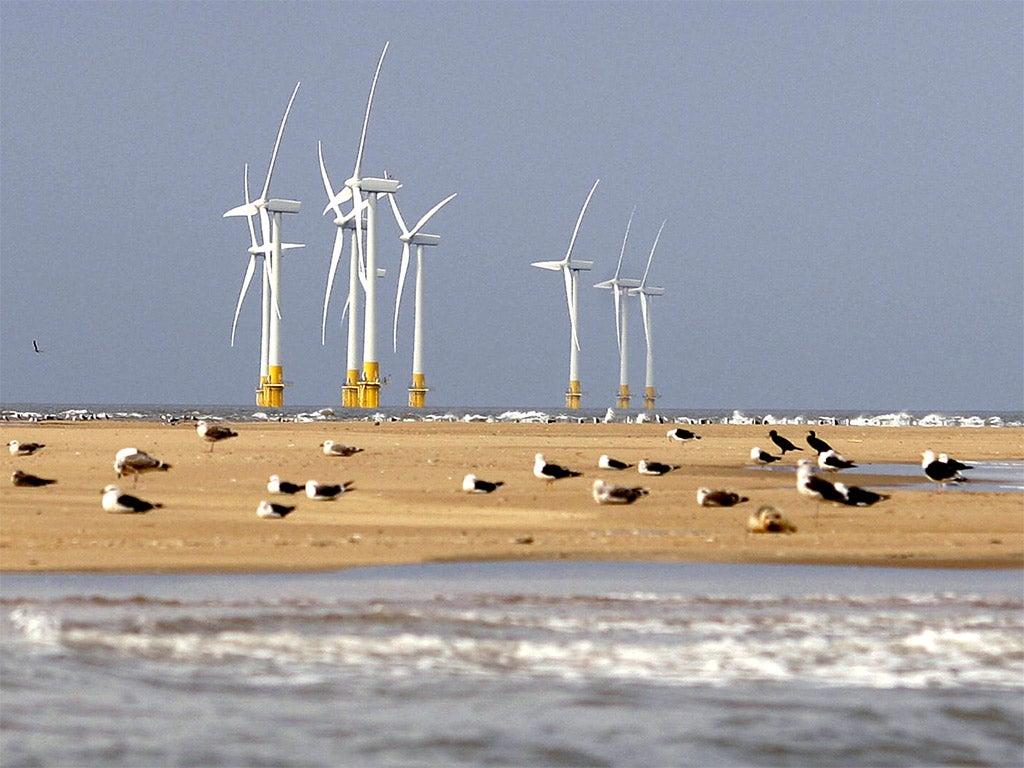Government urged to take dramatic measures to avoid public backlash on energy bills
Report suggests nationalising nuclear stations and changing windfarm policies

Your support helps us to tell the story
From reproductive rights to climate change to Big Tech, The Independent is on the ground when the story is developing. Whether it's investigating the financials of Elon Musk's pro-Trump PAC or producing our latest documentary, 'The A Word', which shines a light on the American women fighting for reproductive rights, we know how important it is to parse out the facts from the messaging.
At such a critical moment in US history, we need reporters on the ground. Your donation allows us to keep sending journalists to speak to both sides of the story.
The Independent is trusted by Americans across the entire political spectrum. And unlike many other quality news outlets, we choose not to lock Americans out of our reporting and analysis with paywalls. We believe quality journalism should be available to everyone, paid for by those who can afford it.
Your support makes all the difference.Household energy bills could be cut by £6.5bn over the next two decades if the government took decisive action to nationalise new nuclear power stations and reduce the risk of developing offshore windfarms, according to new research.
The report warns that dramatic measures are needed to avoid a public backlash against rising energy bills, as Britain embarks on a costly overhaul of the electricity network that will hit the poorest disproportionately hard.
The government plans to build 12 new nuclear power stations and numerous offshore windfarms over the next twenty years to ensure the UK meets its targets to cut carbon emissions.
These will financed by subsidies that are added to consumer energy bills, with the contribution per household set to nearly quadruple from £45 now to £165 in 2030.
The increases will hit the poorest ten per cent of the population six times harder than the richest ten per cent – as a percentage of their disposable income – because energy takes up much more of their budget, according to the research by the IPPR think tank.
“The government’s plans to hike up green levies on energy bills risks causing a public backlash against action to address climate change, especially because they hit the poorest households hardest,” said IPPR associate director Joss Garman.
Mr Garman says the government is ideally placed to reduce the cost of subsidises for low-carbon power by getting more heavily involved in the projects. This would reduce the development risk and, in turn, the cost of the projects and the amount UK households need to pay to subsidise them.
In the case of nuclear power, greater government involvement would see it taking the radical step of essentially nationalising the new nuclear power industry by owning the 12 planned plants and outsourcing their construction and running to private sector firms.
“A big chunk of the risk involved with new nuclear is to do with uncertainty over how the government’s going to behave over the lifetime of the investment,” he says.
He points to the windfall tax imposed on energy generators by the incoming Labour government in 1997 and the German government’s recent decision to shut down its nuclear industry as examples of the kind of state intervention that give power companies nightmares.

“If it’s the government that is doing it, they have a better idea of what their own policies are going to be than the private sector. And if the government has a stake in what the outcome of the policy is going to be then that makes it less likely to do something that’s going to be damaging to the plant itself,” he said.
“All those risks get prices into the level of subsidy that the public is expected to pay and so if the government plays a bigger role the cost is lowered,” he said.
The report also advocates taking a “Danish approach” to offshore windfarms. This would see the government deciding which sites were suitable for development and how much power they should produce and then put the plans out to tender.
“At the moment we have this crazy approach where developers will sink say £100m developing an offshore windfarm and then, having gone through a five to 10-year process to get to point at which they’re ready to do the construction – the government turns them down for a subsidy.”
“These costs are all priced into the subsidies awarded to the projects that do go ahead. So why doesn’t the government say ‘We’re going to have this many offshore wind farms, in these places – and then run an auction?’,” he says.
Taking this approach could save bill payers up to £1bn with very little cost to the government, Mr Garman says.
The IPPR report comes as separate new research underlines the task the UK faces in greening its electricity supply. This showed that the UK is set to miss its target to produce 15 per cent of its energy from renewable sources by 2020, one of only three EU countries that is on course to miss its goal.
A government spokesman said: “This government is committed to keeping household energy bills low, and without government policies bills would have been £90 higher than they were last year. We will continue to ensure the UK’s energy network provides secure, cost-effective and low-carbon energy supplies to homes and businesses.”
Join our commenting forum
Join thought-provoking conversations, follow other Independent readers and see their replies
Comments